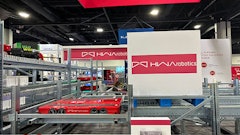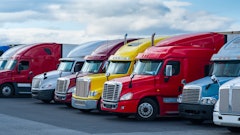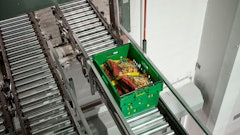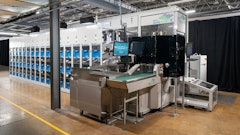April 29--Representatives of trucking and agriculture want state legislators to delay air-quality regulations that they say will create unpredictable spikes in gasoline and diesel prices starting next year.
State regulators say those fears are overblown, and continue to aim at a Jan. 1 date for including fuel distributors in California's controversial cap-and-trade program.
Under cap-and-trade, companies that are unable to reduce their greenhouse-gas emissions to comply with California's air-quality limits can instead buy pollution-offset credits in state auctions.
The uncertainty of what those credits will cost at auctions -- and how and when those costs may be passed along to fuel customers -- was one of the biggest concerns expressed at a press conference Monday at Inland Star Distribution, a major transportation and warehousing company near Malaga, south of Fresno.
Inland Star CEO Michael Kelton and other speakers characterized the costs of carbon credits as a "hidden tax" that will hit truckers, farmers and motorists hard at the gas pump -- even though California Air Resources Board regulations have been on the books since the start of 2012.
"I have great concern for the financial hard times that are yet to come upon us regarding this tax," Kelton said. "I believe the working poor will be impacted the greatest over this" when they fill up at the gas pump.
Rachel Eslick, the governmental affairs director for the Fresno Chamber of Commerce, said the effects of the carbon-offset fees remains a mystery, "and that's what makes this so scary."
"Businesses could be faced with making difficult choices and sacrifices just to afford transportation," she said. "An unpredictable spike in gas prices is the wrong thing for everyone" because of the still-fragile economic recovery in the San Joaquin Valley.
Michael Williams, California government affairs director for the International Warehouse Logistics Association, said that small transportation companies depend on the reliability of stable fuel costs. If fuel companies pass their costs for emission credits on to their customers, including trucking companies, "this will severely increase our costs and make all of our goods more expensive."
While the actual cost is unknown, several speakers offered wide-ranging predictions of future fuel price increases.
"They're talking about $1 a gallon to maybe a buck and a half more a gallon for diesel fuel to put us at six bucks," said Manuel Cunha, president of the Nisei Farmers League. Cunha noted that farmers use gasoline and diesel in their farm equipment and also to haul goods to market. "There's no way the agriculture industry can sustain such a hit."
Casey Dias, the chief financial officer of Charles Diaz Trucking in Fresno, forecast the likely increases at "15 cents per gallon and could increase by as much as 40 cents per gallon in the near future."
Kelton said he's even "heard speculation that we could see $2.50- to $4-per-gallon increases."
Any increase will be a hardship for agriculture, said Will Scott, a Fresno farmer and president of African American Farmers of California. "To add an additional tax on the fuel that's required for me to farm my land and also to make trips to the farmers market in Oakland -- it's costing me $4 a gallon to go up there and back," he said. "If you raise it any more, than I'm out of business."
Kelton said the "Tank the Tax" coalition of transportation and agricultural interests hopes that legislators will postpone the Jan. 1 regulations. "All we're asking for is a three-year repeal of it," he said. "Let's study it longer, let's understand the odds, let's understand how we're going to control this in the future."
The Air Resources Board was authorized to draw up the cap-and-trade system and accompanying regulations following the passage of Assembly Bill 32, the California Global Warming Solutions Act, in 2006. "We've been working on this since 2008, and fuel has always been a part of the equation," ARB spokesman Dave Clegern said Monday.
Clegern said he believes the fears are exaggerated, and discounted concerns over an immediate surge in fuel prices.
"We don't understand why people think there's going to be a sudden price increase on Jan. 1," he added. "The suppliers know it's coming into effect, and some have been buying credits already ... so if there is a cost involved, it's not necessarily a new cost."
While the fuel industry will come under the oversight of AB 32 on Jan. 1, fuel suppliers won't be required to provide the allowances "or surrender anything for compliance until the fall of 2016," Clegern added.
"If there is an increase in the price of fuels, we believe it will generally be a gradual one," he said. "The Air Resources Board sets neither the allowance prices nor fuel prices. But we suspect that any realistic increase would be lost in the white noise of the market anyway. We've seen $2 swings in prices in the last two years" from ordinary fuel market forces.
The reporter can be reached at (559) 441-6319, [email protected] or @TimSheehanNews on Twitter.
Copyright 2014 - The Fresno Bee

























